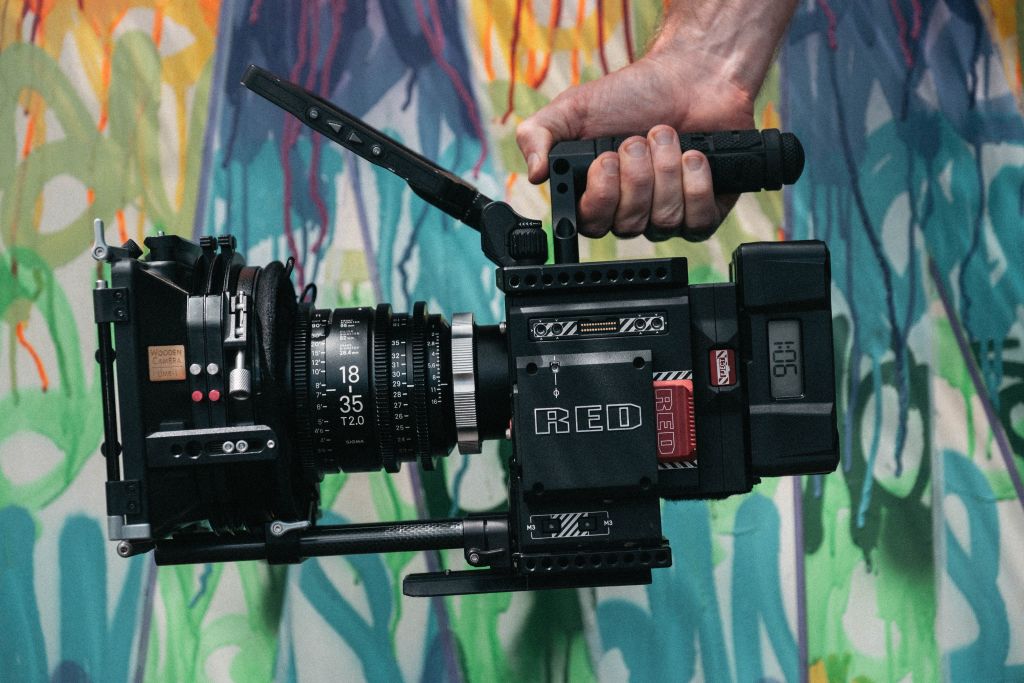Culture
 DC Independent Film Festival. Photo by Jakob Owens.
DC Independent Film Festival. Photo by Jakob Owens.
DC Independent Film Festival Evolves to Meet the Future
November 17, 2021 @ 1:00pm
DC Independent Film Festival is refusing to become archaic. With a plan to evolve in the next two years, the festival is aware of the need to adapt to stay relevant in serving independent filmmakers. And Deirdre Evans-Pritchard, the festival’s executive director, has her gaze toward this future.
“In two years time we will be just the DC Independent Film Forum,” Evans Pritchard states. “What do we mean by that? We mean that we don’t expect people to come and fill a 300 seat theater to watch a movie with us anymore. We will screen fewer films, but we will give those films each more attention, allowing the filmmakers to really discuss their films, the ideas in them [and] how they made them, in a much more in-depth way than is usually possible in your average festival.”
Ahead of the festival’s late submission deadline of November 29, Evans-Pritchard acknowledges content is unpredictable each year. What she can share is that the upcoming festival, on March 2, will feature their popular animation shorts, a new anime film, their high school program screenings in February and will introduce a new feature film from Portugal. They will also host development seminars for filmmakers on the post-filming process.
DCIFF was established in 1999 as a way to nurture independent film in our nation’s capital. The organization works to provide screenings, workshops, seminars and discussions in a way no other festival is — in a way that focuses on the filmmakers’ success and growth.
And in the past, that nurturing looked like filling a large theater with eager viewers, all sitting down and watching a film alongside the director. But that was an era well before the streaming services and social media platforms we have come to use in our everyday lives. Now, Evans-Pritchard says there is less of a desire to fill those same theaters, especially in the remnants of a pandemic.
When Covid-19 hit and shut everything down, she knew it wasn’t the end of the festival. It wasn’t the first time unexpected events have shaken the ground under their feet.
“In the past, storms have shut us down, all these kinds of things,” she says. “So I think we know that these problems can arise.”
And instead of canceling the event and freezing in tradition, the festival adapted to a hybrid event this past year.
“We did a partial online and a partial in person [event], in part as a point of principle to make the statement that we were planning to stay in action as an in-person festival,” Evans-Pritchard says.
In lockstep with technological advancement, the past decade has ushered in a movement online. Films have premiered either strictly on streaming platforms or utilized both in-person theater and streaming platforms to premier their film. But independent cinema is different. Indie directors often don’t have access to large names, budgets or resources to get their films on large platforms — yet art is still being created to be viewed, and filmmakers still need feedback.
“We still see a lot of content being made. We still see excellent new work being made by talent that doesn’t have access to success,” Evans-Pritchard says. “We don’t actually see less need — we just don’t see the need anymore for the filmmakers to use us [as] their only screening options.”
So, while other festivals may be trying to achieve lasting relevance through expansion, Evans-Pritchard says their approach is the opposite.
“We are not going to try to be bigger,” she says. “We are going to try to be better, more intensive and [trying] to bring in people who really will enjoy and benefit from that kind of experience.”
The forum will still have in-person events with the director in the room, but these events will be more focused on conversation and audience review, allowing the director to see and feel the impact of their film. This gives indie filmmakers a chance to get publicity while also hearing feedback.
Although the film industry has seen waves of evolution over the past decade, and the impact of the pandemic can already be felt through how people choose to consume their media, some things remain true: Indie filmmakers are still pursuing and producing important, relevant and moving content.
“I think for filmmakers who are independent filmmakers, that they are releasing what they care about. I don’t see any significant change, if there’s any change, I would say,” Evans-Pritchard says.
DC Independent Film Festival will be held March 2. The deadline for late submission is November 29. Dciff-indie.org // @dcindiefilmfestival
Enjoy this piece? Consider becoming a member for access to our premium digital content. Support local journalism and start your membership today.







